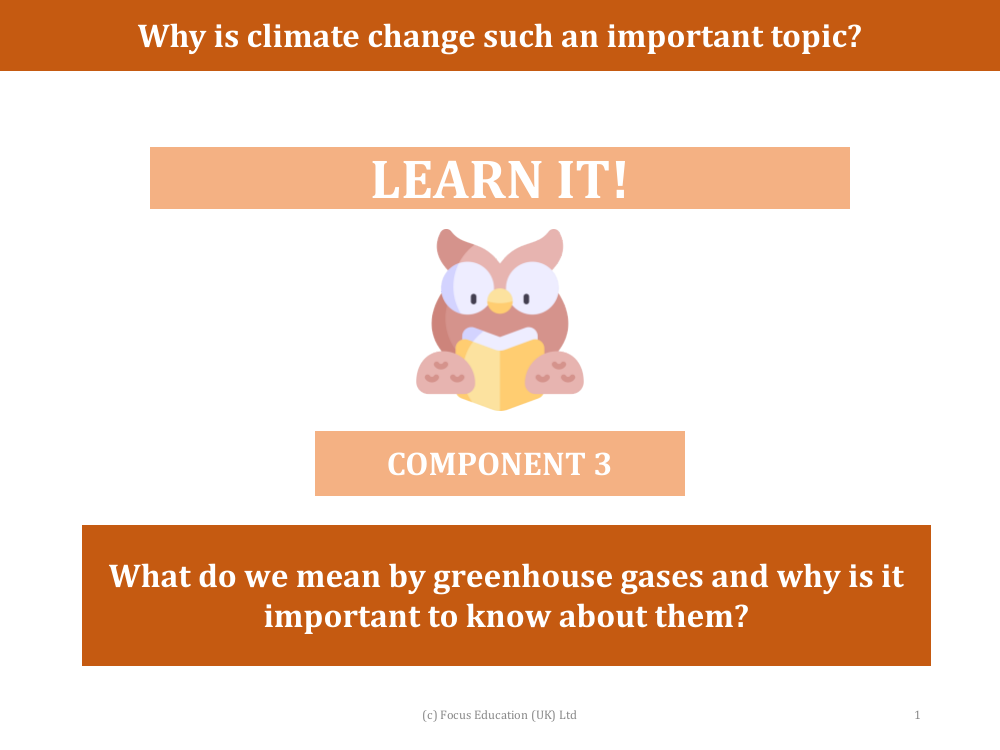What do we mean by greenhouse gases and why is it important to know about them? - presentation

Geography Resource Description
Greenhouse gases are a group of compounds that are able to trap heat in the Earth's atmosphere, which is a process vital for maintaining the planet's temperature to a level that can sustain life. The 'greenhouse effect' is a natural phenomenon that allows sunlight to enter the atmosphere while preventing some of the heat from escaping back into space. The primary greenhouse gases include water vapour, carbon dioxide, methane, ozone, nitrous oxide, and chlorofluorocarbons (CFCs). Understanding these gases is crucial because an excess concentration, particularly from human activities such as burning fossil fuels and deforestation, is linked to climate change—a significant alteration in the Earth's average temperature over time.
Climate change has become an urgent topic of discussion and concern because it is believed that human actions are accelerating changes in the climate by increasing the levels of greenhouse gases in the atmosphere. This leads to a warmer planet, which can have severe consequences for the environment, wildlife, and human health. The potential impacts of these gases are profound unless we act now to reduce emissions. Mitigation, which involves reducing greenhouse gas emissions, and adaptation, learning to live with the effects of climate change, are two strategies to manage this global issue. It is important to be aware of the human activities contributing to the increase in greenhouse gases, such as energy production, transportation, and agriculture, and to explore ways to reduce these emissions to mitigate the effects of climate change.


